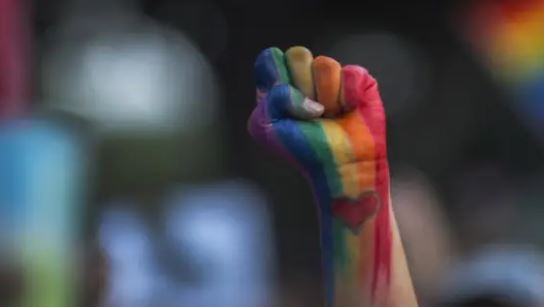I was born in 1963. By my teen years, I was convinced that I was a woman in a man’s body. The reasons for this are various, and I’ll go into some of them later in this piece but, in the early 1980s, when I first started seeking gender reassignment, all I knew is that I was certain of two things: First, that becoming a woman would end my feelings of alienation from my body, and second, that the world was conspiring against me to prevent it.
I cannot speak for everyone who suffers from Gender Identity Disorder, of course, but I have spoken to a fair number of people at various stages of transition and one of the common threads is the externalization of feelings of alienation. I want to touch on that because it proved pivotal in the care that eventually proved effective for me. Put simply, as long as I was able to keep alive the delusion that it was everyone else’s lack of acceptance of me “as I truly am”, I got nowhere in dealing with my core issues.
My first therapist, to whom I was referred in a roundabout fashion through trying to qualify for disability, limited her questions regarding my GID to, “Where are you going to get the money to transition?”
At the time no insurance, public or private, covered the expense of hormone therapy and surgery, so our sessions revolved around trying to figure out which of my relatives could be pressured into coming up with enough cash. That sounds cold, and it is cold, but that’s the truth. The idea that I might be mistaken, or that transitioning might only be one of various treatment options, never came up.
Let’s skip the next decade and a half.
Around the turn of the Century I started seeing another therapist—a court appointed one. This time, I got lucky. This therapist—with whom I worked for the next few years—happened to be a specialist in early childhood trauma and wasn’t afraid to make me profoundly uncomfortable during a session. At the beginning, I was hostile and only going because I was legally required to.
Over time, though, with her guidance, I was able to confront some very ugly things in my past. I learned to realize how much of my unhappiness with my self was due to those things, and as I worked though the memories I began to accept who I was.
The goal of this second round of therapy wasn’t focused on my Gender Identity Disorder at all. The subject came up from time to time, but that wasn’t what my therapist wanted to talk about. In time, I began to see it as she did, as a smokescreen I was throwing up to hide deeper issues.
In fact, I can’t think of any time where she expressed any opinion on the subject, positive or negative. I really have no idea what her opinion, as a clinician, of hormonal/surgical transitioning might be.
Because it turned out that wasn’t my problem. My problem was that I didn’t like myself. Thinking that I’d like myself better if I were a woman was only a symptom. And once I dealt with the root cause, the symptom faded away. There was no big moment of discovery, no one session where I declared that I was happy being a man. It just gradually became less of an issue. One day it was just part of my past, something that I used to feel, but didn’t any more.
This is the Conversion Therapy that the pro-trans movement wants to ban. Behind the specter of electroshock and forced conversions is this truth—that therapy that addresses the root causes of a person’s feelings of being in the wrong body often causes those feelings to fade away. And the corollary is this: Often the hormonal and surgical transition is treating the symptoms and, after the transition, the root causes are still there, as strong as ever.
One last point—I’m glad that I’m old. If had been born in 1993 instead of 1963 there is no doubt in my mind that I would have gone through gender reassignment, and there is equally no doubt that it would have been wrong for me. It would have made a bad situation worse…probably much worse.















